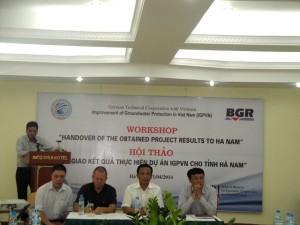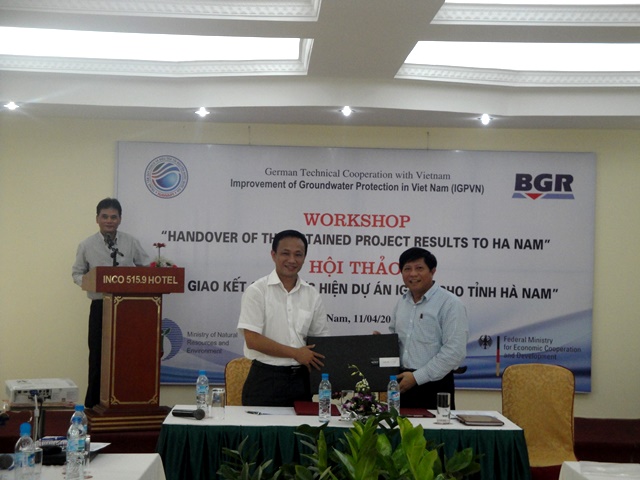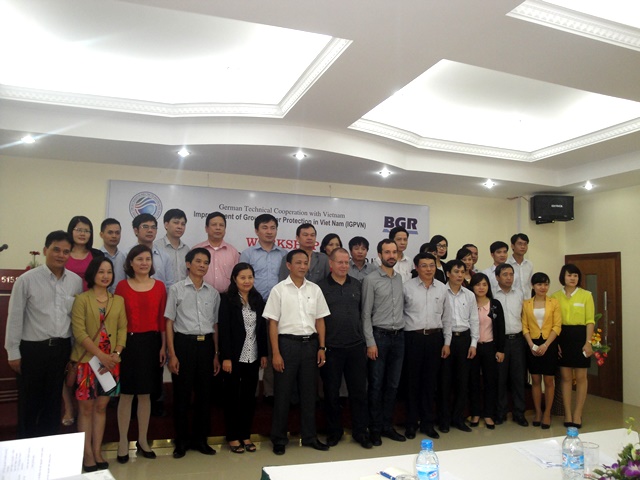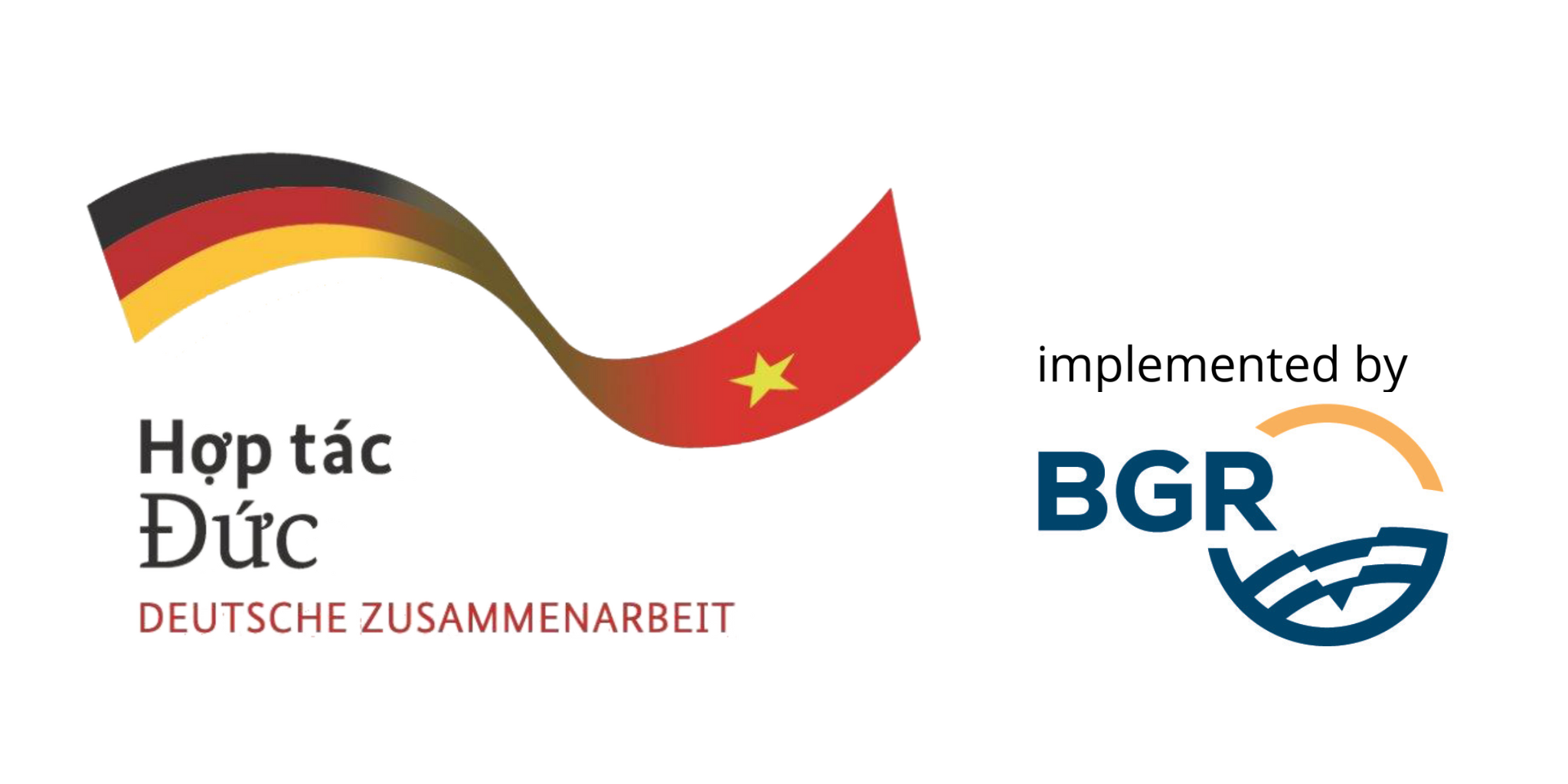Workshop: Handover of the igpvn’s obtained result to Ha Nam
 On 14 April 2014, the Federal Institute of Geosciences and Natural Resources (BGR), National Center for Water Resources Planning and Investigation (NAWAPI) and the Department of Natural Resources and Environment of Ha Nam Province (Ha Nam DONRE) have co-organized the Workshop to hand over the IGPVN’s results to Ha Nam.
On 14 April 2014, the Federal Institute of Geosciences and Natural Resources (BGR), National Center for Water Resources Planning and Investigation (NAWAPI) and the Department of Natural Resources and Environment of Ha Nam Province (Ha Nam DONRE) have co-organized the Workshop to hand over the IGPVN’s results to Ha Nam.On 14 April 2014, the Federal Institute of Geosciences and Natural Resources (BGR), National Center for Water Resources Planning and Investigation (NAWAPI) and the Department of Natural Resources and Environment of Ha Nam Province (Ha Nam DONRE) have co-organized the Workshop to hand over the IGPVN’s results to Ha Nam.
Invited are about 40 participants representing for Ha Nam DONRE including the DONRE’s leaders, Desk for Water Resources, Minerals and Meteorology, Center for Natural Resources and Environment, Monitoring, Sub-Department of Environmental Protection; NAWAPI leaders and all the Section chiefs, directors of the Sub-Centers as well as BGR Experts and IGPVN-Team.
In his speech at the workshop, NAWAPI General Director Doctor Tong Ngoc Thanh emphasizes the importance of Groundwater Resources in Ha Nam as well as the necessity to put more efforts in water resources planning and protection for the sustainable development of the province.
IGPVN Investigations showed that Groundwater in Ha Nam Province provides a rich water source and can be used as a possible source for domestic water supply. However, since long ago, Ha Nam was well known for the serious As contamination of groundwater. The local people were aware of groundwater contamination and its related health risks resulting from direct consumption of As contaminated groundwater.
Various investigations and studies conducted in Ha Nam Province have illustrated the state of As contamination of groundwater. The urgent task to be implemented in the near future is to protect the local people by ensuring a safe As-free water supply.
IGPVN Experts therefore gives some good advice for groundwater management in Ha Nam including the building up of household sand filters following suit the standard designs sufficient for the removal of As and other contaminants in groundwater. This should be introduced to the local people and replicated in other communes with contaminated groundwater. An investigation of the sand filter structure, condition, and removal efficiency is necessary for appropriate advice and support to the local people to improve their sand filters. (take the advantage of the alternative clean water sources such as rain water, dug well water; avoid using raw groundwater for any purpose; avoid misuse).

For long term planning the construction of water treatment plants to centrally supply clean water to the local people is necessary and unavoidable. However, for the moment the local people still need to use and install new tubewells to extract groundwater for their daily use. Therefore, it is important to systematically manage the drilling of new tubewells and to advise the local people on the drilling location and well depth. Abandoned tubewells need to be filled up in order to prevent the potential threat of aquifer contamination.
Besides, awareness raising campaigns play important role and should be organized to provide the local people with information about: a) prevalent groundwater quality; b) how and where to check water quality; c) ways of As removal from groundwater using sand filters; d) appropriate and safe ways to use As contaminated groundwater. In this way it can be ensured that groundwater extracted from private tubewells used by the local people is meeting the Vietnamese drinking water guideline.
In his speech, Project Leader Mr. Jens Boehme stressed that though small step, IGPVN hopes all activities, fieldtrips and awareness campaigns from IGPVN project are important to start for better groundwater management. The massage is that it is time to act. Groundwater protection is a long process and it needs a lot of efforts and investment as well as the agreement from the whole community.
DONRE leader Mr. Vu Huu Song agrees with the experts that Ha Nam should invest more on water resources. Ha Nam will take the results from IGPVN and use them as good tools for management. He admits that Ha Nam urgently needs groundwater resources planning to ensure good use and better management of groundwater.

(IGPVN)

